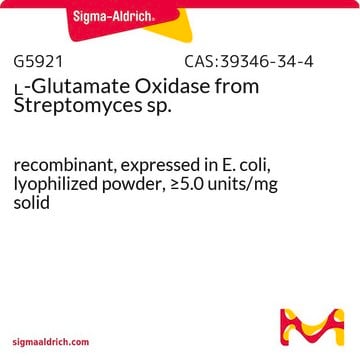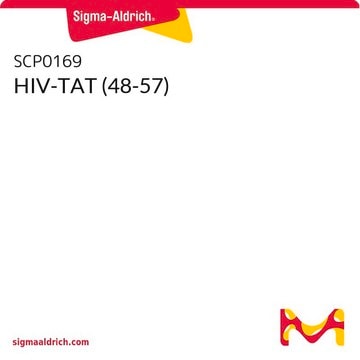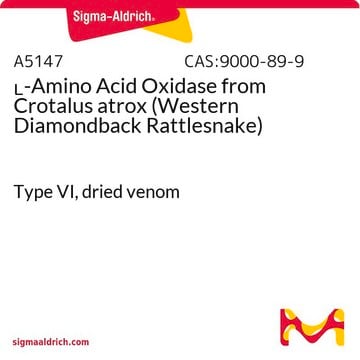Recommended Products
product name
Histone H3 Peptide, biotin conjugate, This peptide corresponds to residues 1-21 of histone H3.
Quality Level
manufacturer/tradename
Upstate®
technique(s)
immunoprecipitation (IP): suitable
NCBI accession no.
UniProt accession no.
shipped in
wet ice
Gene Information
human ... H3F3B(3021)
Application
This peptide corresponds to residues 1-21 of histone H3.
Quality
Routinely evaluated as a substrate for histone-modifying enzymes.
Physical form
Lyophilized powder
Storage and Stability
2 years at -20°C
Legal Information
UPSTATE is a registered trademark of Merck KGaA, Darmstadt, Germany
Disclaimer
Unless otherwise stated in our catalog or other company documentation accompanying the product(s), our products are intended for research use only and are not to be used for any other purpose, which includes but is not limited to, unauthorized commercial uses, in vitro diagnostic uses, ex vivo or in vivo therapeutic uses or any type of consumption or application to humans or animals.
Storage Class
11 - Combustible Solids
wgk_germany
WGK 3
flash_point_f
Not applicable
flash_point_c
Not applicable
Certificates of Analysis (COA)
Search for Certificates of Analysis (COA) by entering the products Lot/Batch Number. Lot and Batch Numbers can be found on a product’s label following the words ‘Lot’ or ‘Batch’.
Already Own This Product?
Find documentation for the products that you have recently purchased in the Document Library.
Junmei Kang et al.
Genes, 11(3) (2020-03-28)
Arabidopsis thaliana MUT9-like kinases (MLKs), a family of the plant-specific casein kinase 1 (CK1), have been implicated collectively in multiple biological processes including flowering. Three of the four MLKs (MLK1/2/4) have been characterized, however, little is known about MLK3, the
Lian-Mei Tan et al.
The Plant cell, 32(7), 2178-2195 (2020-05-03)
Chromatin remodeling and histone modifications are important for development and floral transition in plants. However, it is largely unknown whether and how these two epigenetic regulators coordinately regulate the important biological processes. Here, we identified three types of Imitation Switch
Our team of scientists has experience in all areas of research including Life Science, Material Science, Chemical Synthesis, Chromatography, Analytical and many others.
Contact Technical Service




